If you’ve ever felt called to help others through some of life’s most difficult battles, becoming a drug and alcohol counselor might just be your perfect path. This is more than just a job—it’s a deeply meaningful career where you support people as they overcome addiction and take back control of their lives.
But how do you get there? What’s the timeline? What degrees or training do you need?
What Is a Drug and Alcohol Counselor?
A Certified Alcohol and Drug Counselor works closely with individuals struggling with substance use. Whether someone is in the early stages of recovery or rebuilding their life after treatment, counselors offer support, guidance, and structure.
You’ll often help clients:
- Set recovery goals
- Develop coping strategies
- Navigate relapse triggers
- Access community resources
- Reconnect with family and work life

What Is SAC Certification?
In many states—including Wisconsin—the SAC (Substance Abuse Counselor) credential is an entry-level certification that allows you to work as a counselor under supervision.
The SAC certification is often the first step toward becoming fully licensed. Once you gain more experience, education, and supervised hours, you can move up to CSAC (Clinical Substance Abuse Counselor) or even an independent practice.
This tiered path means you can start your career while continuing your education rather than waiting for a degree to be completed before entering the field.
Education Requirements: What Degrees Do You Need?
Here’s where things get flexible—there isn’t just one way to qualify.
- Minimum Education:
To become certified, most SAC programs require at least a high school diploma or GED. From there, you’ll complete specific training hours (we’ll talk about that next).
- Preferred Degrees:
While not mandatory, having an associate or bachelor’s degree in:
- Psychology
- Social Work
- Counseling
- Addiction Studies
can really help you stand out.
Already Have a Degree?
If you already hold a related degree, you may qualify for accelerated Certified Alcohol and Drug Counselor Training through a recognized program like Laitinen Academy. They offer flexible training tailored for people with all kinds of educational backgrounds.
SAC Certification Timeline: How Long Does It Take?
The great news? You don’t need to spend years in school before working in the field. With a focused, step-by-step plan, you can earn your SAC certification in less than a year.
Here’s a sample timeline:
Month 1–3:
Enroll in a certified training program like the one offered by Laitinen Academy. These are often self-paced or flexible so that you can complete coursework on your schedule.
You’ll learn topics like ethics, counseling theory, addiction treatment strategies, and recovery support.
Month 4–6:
Complete supervised field experience (also known as practicum). This is where you get hands-on time working with real clients under the guidance of a licensed counselor.
Month 6–9:
Prepare for and pass the required state certification exam. Once you pass, you’ll officially be a Substance Abuse Counselor (SAC) and can begin working in treatment centers, hospitals, recovery clinics, and more.
Some people complete this timeline even faster if they’re dedicated and already have related experience.

Where to Get Trained
If you’re wondering where to start your journey, Laitinen Academy has you covered.
They’re known for offering practical, flexible, and supportive education for anyone pursuing a career in behavioral health. Their Certified Alcohol and Drug Counselor Training is designed to get you field-ready without unnecessary delays.
Even better? Their curriculum blends academic knowledge with real-world tools—so when you graduate, you’re ready to hit the ground running.
Plus, if you’ve already completed a recovery coach academy program, you may already have credit hours or knowledge that applies toward SAC certification!
Is This Career Right for You?
If you’re someone who:
- Cares deeply about helping others
- Believes in second chances
- Is a great listener
- Wants to create a real impact
Then yes, this is for you.
Drug and alcohol counselors are in high demand right now, especially as more people seek help in the post-pandemic world. Job growth is strong, and career stability is real.
Whether you’ve experienced recovery yourself, have seen loved ones struggle, or simply want to work in a meaningful space—your story matters, and it can inspire others to heal.
Tips for Success in SAC Programs
Here are a few simple ways to succeed in your certification journey:
- Stay Engaged
Attend every session, ask questions, and really absorb the material. This isn’t just about passing a test—it’s about preparing to change lives.
- Practice Self-Care
This work can be emotionally demanding. Make time for yourself. Rest, recharge, and reflect.
- Build Your Network
Connect with classmates, instructors, and professionals in the field. You never know who might help you land that first job or offer valuable mentorship.
- Stay Curious
The field of addiction recovery is always evolving. Stay open to learning, attend workshops, and keep exploring new tools and strategies.
Final Thoughts: Your New Chapter Starts Today
Becoming a drug and alcohol counselor isn’t just a career move—it’s a calling. And if you feel pulled toward helping people rise from tough circumstances and reclaim their lives, then trust that feeling. The world needs people like you.
Through SAC certification and a supportive recovery coach academy, you can start changing lives—including your own.
Explore your future with Laitinen Academy, where you’ll gain the skills, support, and training you need to thrive in the behavioral health field.
Don’t wait—take the first step today and discover just how far your compassion can take you!
